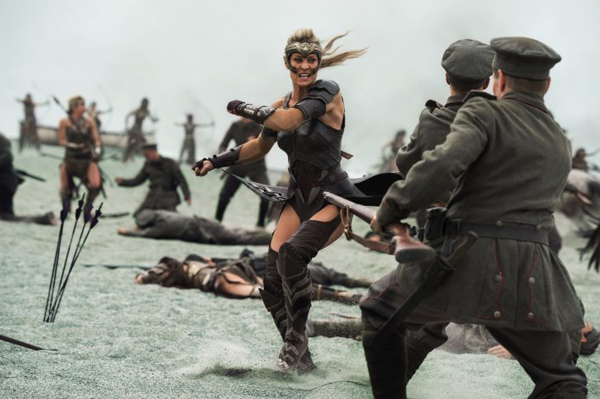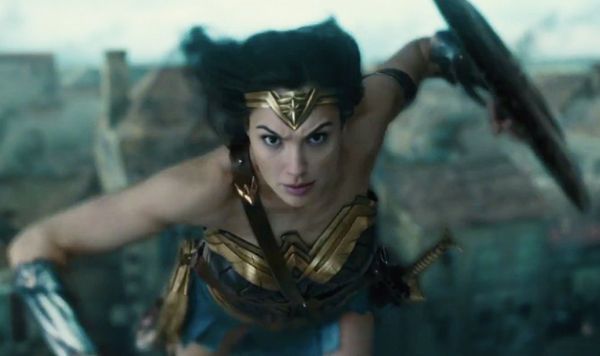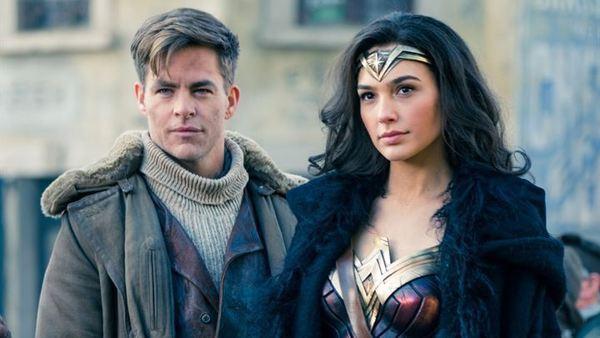Wonder Woman Review
DC Entertainment needed a superhero hit badly, and what better way to make a comeback than with a female heroine? Maybe “Wonder Woman” should be evaluated apart from its exciting feminist energy, but in a prolific superhero movie landscape, individuality matters, and the female star-director duo of Gal Gadot and Patty Jenkins is a large part of what makes “Wonder Woman” stand out.
Aside from the very obvious, however, nothing groundbreaking is at play here in this movie in terms of its genre and storytelling. Even its wartime period setting (“Captain America: The First Avenger”) and mix of mythology and the real world (“Thor”) have been done before. Diana (Gadot) exhibits similar traits to the optimism and principled nature of Captain America and the joie de vivre and brazenness of Thor. So if “Wonder Woman” feels fresh at all, you have to strongly consider the impact of the feminine factor.
What’s great about Diana in this film is that she doesn’t fit in a box and she can’t be told what to do. Gadot exhibits a subtle but definitive confidence with the ability to step back for lighter moments and forward when we need to connect with the ferocity of her feelings and beliefs. Screenwrtier Allan Heinberg, whose credits include a number of female-driven TV shows, does his best work giving Gadot opportunities to display Diana’s personality, and the way her sex factors into this World War I setting is forthright but not overbearing.
The script’s only other strength is in delivering a message about war and love and humanity’s capacity for good and evil. Superhero films and similar genres have treaded in this territory plenty of times, but Diana’s journey to her epiphany is well-realized. The rest of the story, however, leans too much on formula and cliché.

In fact, aside from Robin Wright and a solid enough beach battle, “Wonder Woman” is a pretty terrible movie until Diana leaves her home on the island of Themyscira. She’s just another rebellious hero with a destiny who wants to defy a parent and leave her home. Some of the film’s distractingly poor CGI shots (like young Diana jumping off a cliff) don’t help. It also takes about halfway through the movie to adjust and accept Jenkins’ reliance on slow-motion and computer- driven action shots and appreciate the heavy stylization.
Once Diana sets sail with Steve Trevor (Chris Pine), a spy for the British who washed up on her island and told her of the “war to end all wars” that she feels destined to end, “Wonder Woman” begins a gradual but sure-footed ascent toward quality. The initial boat scene, in which she turns Trevor into a bumbling fool with her confidence and poise, hints at the character development to come.
The prevailing tone and sentiment of “Wonder Woman” very closely echoes that first “Captain America” movie, which was extremely solid, so even though it doesn’t transcend it, it’s a fair and positive comparison, better even for those who haven’t seen that movie. Both heroes discover the positive impact that one gifted individual can have on the world (with the right team), which in “Wonder Woman” comes in the form of a pretty unforgettable sequence between the trenches of the Western front.
Like many of the ensuing scenes, this “No Man’s Land” sequence isn’t mind-blowing, but everything that does happen from this point on is particularly attuned to Diana. Everything caters to her emotional journey and the place her worldview is meant to arrive, even if it isn’t especially gripping, compelling or surprising.
There’s no better way to describe how Jenkins captures her star and main character other than inspiring. Although not immediately evident to this cisgender male reviewer, you can see the effect the film is having on women and girls and understand it.
Although Gadot’s hair is blowing about a lot and we get Diana in slow motion action poses, Jenkins – whether because she’s a woman herself or understands the sensitivities having a woman action star requires – avoids over-sexualizing Gadot. The sexiness of Diana comes from her strength and confidence more than Gadot’s physical attractiveness. The slow motion is about letting that sink in and inspire, not about ogling her. By the end, Diana’s strength, intelligence and sexiness is only matched by her mindfulness and compassion, which we haven’t seen to the same degree in Wonder Woman’s male counterparts.
I don’t want to make “Wonder Woman” into a movie that’s only about its hero’s gender, but having seen enough superhero movies, so much of what sets “Wonder Woman” apart is the result of its female star and female director. After so many male-dominated superhero films, that perspective really makes a difference in carving out a space for “Wonder Woman” among its contemporaries.
Where does ‘Wonder Woman’ fall in my all time superhero movie rankings? Check out the list on Letterboxd.
4/5 Stars
Wonder Woman
Directed by Patty Jenkins
Written by Allan Heinberg (screenplay), Zack Snyder & Allan Heinberg and Jason Fuchs (story)
Starring: Gal Gadot, Chris Pine, Robin Wright, David Thewlis






0 Comments
You can be the first one to leave a comment.